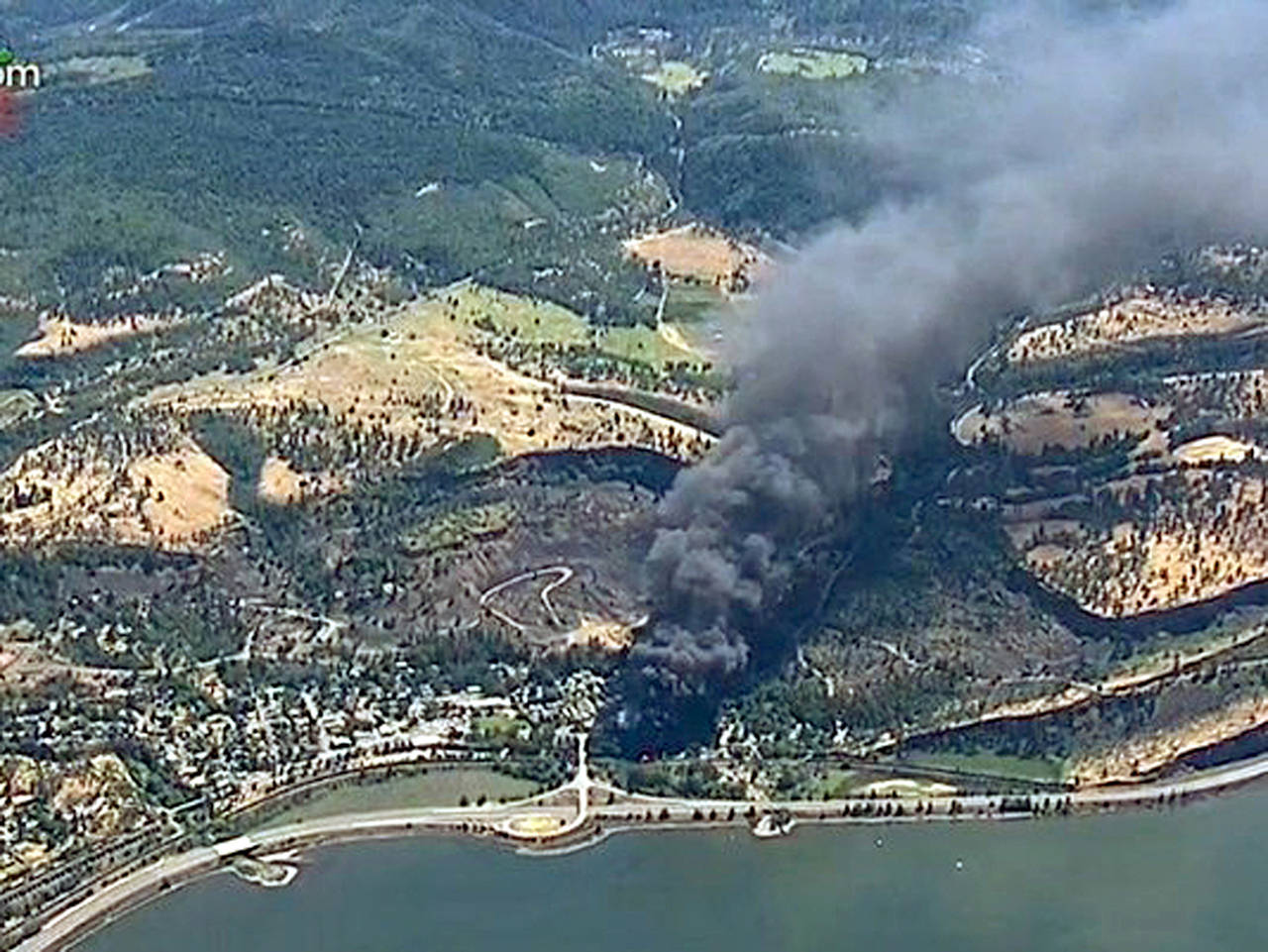By The Herald Editorial Board
There’s lobbying, and then there’s coercion through the threat of lawsuit.
A North Dakota oil regulation agency attempted the latter recently when it threatened to sue the state of Washington should the Legislature move forward with a bill that seeks to limit the risk of oil railcar disasters in the state by setting an internal vapor pressure standard for Bakken crude oil carried by railcars. Bakken crude is a highly volatile oil from parts of North Dakota, Montana and Saskatchewan, Canada, and was involved in rail disasters in Canada and in the U.S., most recently along the Columbia River.
Bakken and other crude oil trains pass through Snohomish County on their way to refineries in Skagit and Whatcom counties.
Following passage of the legislation in the Senate, Lynn Helms, director of North Dakota’s Department of Mineral Resources, reiterated the threat during a House Environment and Energy Committee hearing, referring to a suit for $1.6 million that North Dakota won against Minnesota regarding a renewable energy standard its legislature adopted.
Despite the threat, the legislation was approved Monday by the committee. While the threatened lawsuit did not appear to have resonated with lawmakers, House Democrats on the environment committee did take seriously the testimony from representatives of Washington refineries, their employees and others, and amended the legislation with a pressure valve of its own that will delay implementation of the new standard and provide more information regarding oil trains and their cargo to the state Department of Ecology.
The substitute to the Senate legislation keeps the original bill’s standard that crude oil unloaded at refineries and other facilities in the state have a vapor pressure of 9 pounds per square inch or less, lower than the current standard — set by North Dakota in 2015 — of 13.7 pounds.
The amended legislation will delay that standard’s implementation until two years after the state Department of Ecology notifies the Legislature that the volume of crude oil arriving by rail has increased more than 5 percent over the volume transported in 2018. Another amendment requires refineries and others to report the types of crude and vapor pressure levels to the Ecology Department.
Both amendments are responsive to concerns raised that the original bill could have threatened employment at state refineries if the new standard discouraged shipment of Bakken crude because of the increased expense of removing the most volatile petroleum compounds from the crude before its transport by rail. To replace the Bakken crude, some warned, refineries would likely increase shipments of crude from West Africa, the Middle East and Russia, requiring more shipment by tankers through Washington’s Salish Sea, heightening the risk of a spill into marine waters.
More time before such a standard is adopted also could allow for completion of a study and rulemaking by the federal Pipeline and Hazardous Materials Safety Administration that could set a nationwide transportation standard for Bakken and other types of crude.
Helms and other North Dakota officials criticized the legislation’s 9-pound pressure standard as arbitrary but offered no explanation why 13.7 pounds was safe enough. Nor did those officials explain why North Dakota regulators are now seeking to weaken even that standard, which the state set just four years ago, as reported last fall by the Bismarck Tribune.
Industry representatives testified that Bakken crude poses no more threat than other types of crude, but recent rail disasters counter that conclusion.
At least 47 people died in 2013 in Lac Megantic, Quebec, when an unattended train of 74 cars carrying Bakken crude rolled down a grade and into town, derailed and exploded with a blast radius of more than a half-mile.
More recently, a Union Pacific train of 96 cars, also carrying Bakken crude, derailed in the Columbia River Gorge near Mosier, Oregon, in June 2016. Sixteen of its cars derailed when a failure of its emergency braking system caused the brakes to engage. Several cars caught fire. Had the derailment occurred elsewhere along that stretch, the leaking cars could have landed in the Columbia River or near populated areas.
In light of North Dakota’s attempt to weaken its own standard and the Trump administration’s moves to scale back more stringent rules regarding the transportation of all crude oil and petroleum products — such as the Obama administration’s rule regarding oil-train brakes — state lawmakers are acting responsibly by seeking tighter controls for crude oil transportation in general and for Bakken crude in particular.
The compromises offered by the House committee recognize the need for more information and avoidance of unintended consequences as regulations are written that protect jobs and deliver a greater level of safety.
Talk to us
> Give us your news tips.
> Send us a letter to the editor.
> More Herald contact information.

























